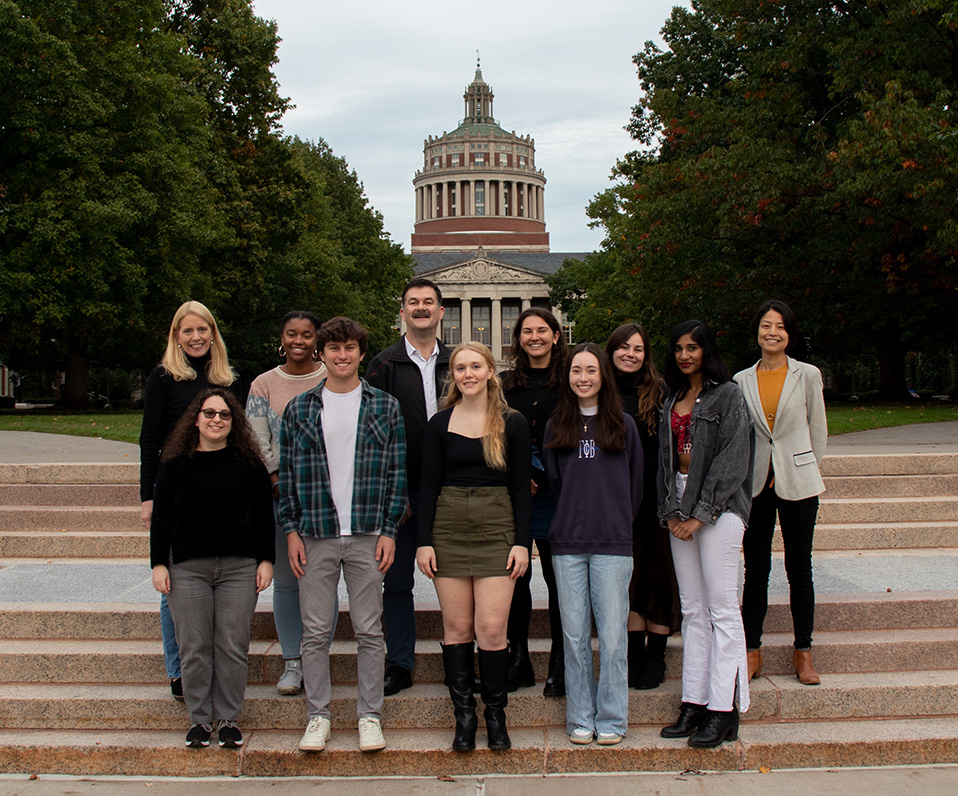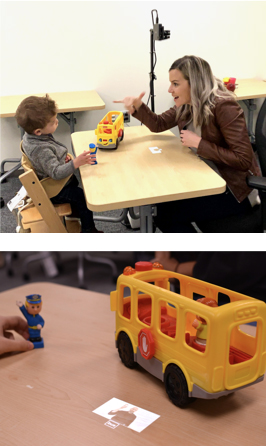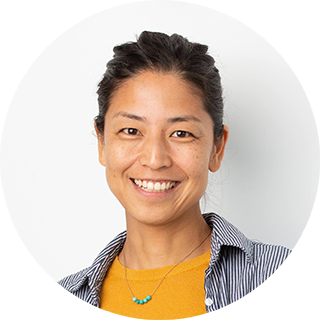Li, Y., Wang, H., Hossain, E., Mann, M., Yu, J. Newman, KS., Bao, A., Willis, A., Kurumada, C., Hall, WC., & Bai, Z. (2025). Leveraging Usefulness and Autonomy: Designing AI-Mediated ASL Communication Between Hearing Parents and Deaf Children. IDC '25: Proceedings of the 24th Interaction Design and Children. Reykjavik.
Gu, Y., Cutler, S., Xie, X., & Kurumada, C. (2024). Short- and long- term exposure to nonnative accents on adaptive speech perception. The 30th annual meeting of Architectures and Mechanisms for Language Processing (AMLaP). Edinburgh.
Kurumada, C., Rivera, R., Allen, P., & Bennetto, L. (2023). Perception and adaptation of receptive prosody in autistic adolescents. The 2023 annual meeting of Psychonomics Society. San Francisco.
Gu, Y., Xie, X., & Kurumada, C. (2023). Rapid speech adaptation under adverse listening conditions. The 2023 annual meeting of Psychonomics Society. San Francisco.
Kurumada, C., Rivera, R., Allen, P., & Bennetto, L. (2023). Accurate but not flexible?: Perceptual learning of receptive prosody in autistic adolescents. The 48th meeting of Boston University Conference on Language Development (BUCLD).
Rubio-Fernandez, P., & Kurumada, C. (2023). The development of informativity: Multimodal referential communication in Spanish and Norwegian preschoolers. The 2023 meeting of Many Path to Language (MPaL). Max Planck Institute for Psycholinguistics, Nijmegen.
Gu, Y., Xie, X., & Kurumada, C. (2023). Rapid speech adaptation under adverse listening conditions. The 2023 meeting of Society for the Neurobiology of Language. Marseille, France.
Xie, X., Jaeger, T. F., & Kurumada, C. (2023). What we do (not) know about the mechanisms underlying adaptive speech perception. The 184th Meeting of the Acoustical Society of America. Chicago, IL.
Xie, X., & Kurumada, C. (2023). Nonnative speech adaptation in the initial moments and over a month. The 184th Meeting of the Acoustical Society of America. Chicago, IL.
Xie, X. & Kurumada, C. (2023). Speech adaptation in a moment and over a month. The 2nd Annual Conference on Human Sentence Processing, University of Pittsburgh, PA.
Xie, X., Jaeger, T. F. & Kurumada, C. (2023). What we do (not) know about the mechanisms underlying adaptive speech perception. The 184th Meeting of the Acoustical Society of America. Chicago, IL.
Xie, X., & Kurumada, C. (2023). Nonnative speech adaptation in the initial moments and over a month. The 184th Meeting of the Acoustical Society of America. Chicago, IL.
Kurumada, C., Rachel, R., Allen, P. & Bennetto, L. (2023). Accurate, but not flexible?: Adaptive interpretation of intonation speech prosody in autistic adolescents. The Meeting on Language in Autism (MOLA). Duke University, Durham, NC. (*Poster not presented due to scheduling conflicts)
Ostrow, A., Silverman, N., & Kurumada, C. (2023). Flexibility and stability in adaptive interpretation of intonational prosody in younger and older adults. The Linguistics Society of America 2023 Annual Meeting. Denver, Co.
Liu, K., Buxó-Lugo, A. & Kurumada, C. (2022). Efficient talker-adaptation to prosodic variability: flexibility and stability over time. The 1st Conference on Human Sentence
Processing, University of California, Santa Cruz (Zoom).
Xie, X., Jaeger, T. F. & Kurumada, C. (2022). Mechanisms of Change: how do we know when our perception gets adapted to the input? The 1st Conference on Human Sentence
Processing, University of California, Santa Cruz (Zoom).
Xie, X., Buxó-Lugo, A. & Kurumada, C. (2021). Distributional learning as a driver of robust speech processing. The 34th CUNY conference on sentence processing, University
of Pennsylvania (Zoom).
Kurumada, C., Xie, X. & Buxó-Lugo., A. (2021). An Ideal-observer approach to structured talker variability in prosodic productions. The annual conference of the German Linguistic Society (Deutsche Gesellschaft für Sprachwissenschaft, DGfS).
Kurumada, C. Buxó-Lugo., A. (2020). Prosodic adaptation is talker-sensitive but not talker-specific. The 33rd CUNY conference of sentence processing, Amherst, MA. [March 2020 Powerpoint]
Buxó-Lugo, A. & Kurumada, C. (2019). That was a question?: Accommodating variability in intonation interpretation. Paper presented at the 32nd CUNY conference on sentence processing, Universtiy of Colorado, Boulder. [March 2019 Powerpoint]
Kurumada, C. (2019). Ambiguity all the way down: Inferring intentions from the acoustic signal. An invited talk at the workshop on Dynamics of Ambiguity, University of Tübingen, Germany, February 24th. [March 2019 Powerpoint]
Gardner, B., & Kurumada, C. (2019). Variation in the rational interpretation of slights: Gender-based microaggressions . Poster presented at the 32nd CUNY conference on sentence processing, Universtiy of Colorado, Boulder. [pdf]
Gardner, B., & Kurumada, C. (2019). You're good at math for a woman: An experimental analysis of gender-based microaggressions. Poster presented at the annual meeting of the Linguistics Society of America. New York City.
Kurumada, C. & Andrés Buxó-Lugo (2018). Variability and inferences in pragmatic interpretation of speech prosody. An invited talk at a symposium at the 59th Annual Meeting of the Psychonomics Society: What Speech Prosody Can Tell Us About Cognition, November 17th.
Buxó-Lugo, A. & Kurumada, C. (2018). Navigating variability in question-statement prosody. Poster presented at the 59th meeting of Psychonomics Society, New Orleans.
Buxó-Lugo, A., Nourani, S. & Kurumada, C. (2018). Accommodating variations in pragmatic interpretations of intonation contours. Poster presented at the 4th meeting of Experimental and Theoretical Advances in Prosody (ETAP4), University of Massachusetts, Amherst.
Pogue, A., Brown-Schmidt, S., & Kurumada, C. (2018). Integrating socially situated non-linguistic cues in pragmatic generalization. Pre-AMLaP workshop on Socially situated language processing, ZAS Berlin, September 5th.
Andino, A., Andrews, J., & Kurumada, C. (2018).
The effect of foreign accent on children's learning of new knowledge. Poster presented at the 32nd Annual National Conference on Undergraduate Research. Edmond, OK. [April 2018 Powerpoint]
Gardner, B., Clark, M., Pogue, A., & Kurumada, C. (2018). Real-time pragmatic processing with a novel lexicon. Poster presented at the 32nd Annual National Conference on Undergraduate Research. Edmond, OK. [April 2018 Powerpoint]
Gardner, B., Pogue, A., & Kurumada, C. (2018). Real-time pragmatic processing with a novel lexicon. Poster presented at the 31st Annual CUNY Conference on Human Sentence Processing. Davis, CA. [March 2018 Powerpoint]
Lee, C., & Kurumada, C. (2018). Learning absolute adjective meanings through non-absolute exemplars. Poster presented at the 31st Annual CUNY Conference on Human Sentence Processing. Davis, CA. [March 2018 Powerpoint]
Dix, S., Lawrence, R., Morgan, C., & Kurumada, C. (2018). Integration of bottom-up and top-down information in on-line interpretations of scalar adjectives. Presentation given at the 92nd Annual Meeting of the Linguistic Society. Salt Lake City, UT. [January 2018 Powerpoint]
Lee, C., & Kurumada, C. (2017). Contextual inferences through variable exemplars: An artificial adjective learning study. Presentation given at the 42nd Boston University Conference on Language Development. Boston, MA. [November 2017 Powerpoint]
Kurumada, C., & Grimm, S. (2017). Roles of meaning predictability in language production and learning. Presentation given at Yale Meaning in Flux Workshop. New Haven, CT. [October 2017 Powerpoint]
Lee, C., & Kurumada, C. (2017). Roles of prototypes vs. situation-based inferences in the learning of absolute gradable adjectives. Presentation given at Yale Meaning in Flux Workshop. New Haven, CT. [October 2017 Powerpoint]
Pogue, A., & Tanenhaus, M.K. (2017). Exploring how speakers mark, and listeners assess, certainty. Poster presented at 7th Biannual Experimental Pragmatics Conference. Cologne, Germany. [June 2017 Poster]
Buxo-Lugo, A., Kurumada, C. & Watson, D. (2017).
Adaptation and learning in prosodic phrasing of syntactically ambigious sentences. Poster presented at the 30th Annual CUNY Conference on Human Sentence Processing. Boston, MA.
Kurumada, C., Plvan-Franke, J., Orth, W., & Grimm, S. (2017). Communicative efficiency in language production and evolution: optional plural marking. Poster presented at the 30th Annual CUNY Conference on Human Sentence Processing. Boston, MA. [April 2017 Poster]
Orth, W., Pogue, A., & Kurumada, C. (2017). The role of context and information in the interpretation of scalar adjectives. Poster presented at the 30th Annual CUNY Conference on Human Sentence Processing. Boston, MA. [April 2017 Poster]
Pogue, A., Brown-Schmidt, S., & Kurumada, C. (2017). Casual attributions in the adaptation of pragmatic informativity assumptions. Poster presented at the 30th Annual CUNY Conference on Human Sentence Processing. Boston, MA.[April 2017 Poster]
Orth, W., Pogue, A., & Kurumada, C. (2017). Contextual factors in child adjective interpretation. Poster presented at the 31st Annual National Conference on Undergraduate Research. Memphis, TN.
Pogue, A., Kurumada, C., & Tanenhaus, M.K. (2017). Preschoolers pragmatic generalization based on scalar adjective use. Poster presented at the CSLI Workshop: Bridging Computational and Psycholinguistic Approaches to the Study of Meaning. Stanford, CA.
Pogue, A., Brown-Schmidt, S., & Kurumada, C. (2017). The role of causal attribution in the generalization of pragmatic informativity assumptions. Poster presented at the CSLI workshop: Bridging Computational and Psycholinguistic Approaches to the Study of Meaning. Stanford, CA.
Ryskin, R., Kurumada, C., & Brown-Schmidt, S. (2016). Information integration in online modulation of pragmatic inferences during language comprehension. Poster presented at the 57th Meeting of Psychonomic Society. Boston, MA.
Gardner, B., Sullivan, A., Trine, T., Jaeger, T.F., & Kurumada, C. (2016). Rapid adaptation of online pragmatic inferences on scalar adjectives. Poster presented at the 22nd Annual AMLaP Conference, Architectures and Mechanisms for Language Processing. Bilbao, Spain.
Ryskin, R., Kurumada, C., & Brown-Schmidt, S. (2016). Bottom-up adaptation of online pragmatic inferences to variability of speakers. Presentation given at the 29th Annual CUNY Conference on Human Sentence Processing. Gainesville, Florida.
Pogue, A., Kurumada, C., & Tanenhaus, M.K. (2015). Speaker-based generalization of quantity implicature in preschoolers. Presentation given at the 40th Annual Boston University Conference on Language Development. Boston, MA.
Pogue, A., Kurumada, C., & Tanenhaus, M.K. (2015). Speaker-specific generalization of pragmatic inferences based on prenominal adjectives. Presentation given at the 37th Annual Conference of the Cognitive Science Society. Pasadena, CA.
Pogue, A., Kurumada, C., & Tanenhaus, M.K. (2015).Speaker-specific pragmatic generalizations based on under- vs. over-informative utterances. Presentation given at Experimental Pragmatics 2015. Chicago, IL. [July 2015 Abstract]
Pogue, A., Kurumada, C., & Tanenhaus, M.K. (2015). Exploring expectations based on speaker-specific variation in informativity. Presentation given at Formal and experimental pragmatics: methodological issues of a nascent liaison. Berlin, Germany. [June 2015 Abstract]
Ryskin, R., Kurumada, C., & Brown-Schmidt, S. (2015). Adaptation of pragmatic inferences transfers across contrastive domains. Poster presented at the 28th Annual CUNY Conference on Human Sentence Processing. Los Angeles, CA.
Kurumada, C., Brown, M., Bibyk, S., Pontillo, D., & Tanenhaus, M.K. (2014). Expectation-adaptation in incremental interpretation of contrastive prosody. Presentati given at the 27th Annual CUNY Conference on Human Sentence Processing. Columbus, OH.













